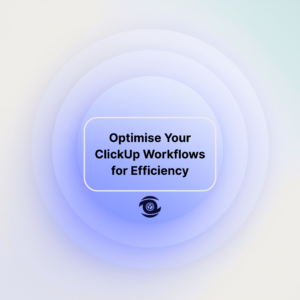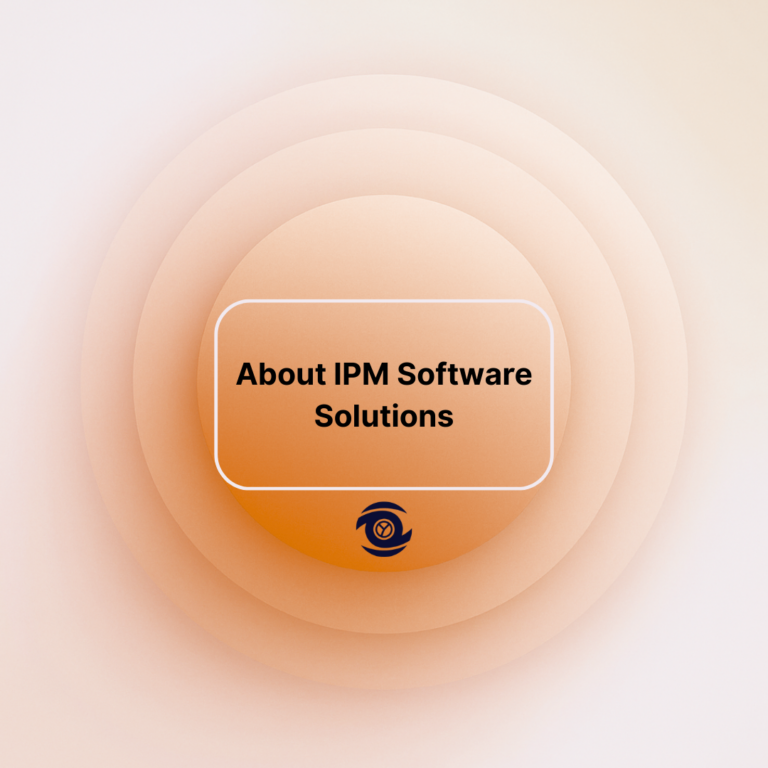In today’s fast-paced world, the concepts of effectiveness and efficiency are often discussed, yet frequently misunderstood. While both are critical to achieving success, they serve distinct purposes and are not interchangeable. This blog post aims to elucidate the differences between these two important concepts, explore their significance in professional settings, and discuss how leaders and individual contributors can benefit from balancing effectiveness and efficiency. By understanding and applying the principles of both, organisations can truly excel in their pursuits, ensuring tasks are not only completed with precision but also deliver desired outcomes. Dive into this detailed guide to enhance your understanding and decision-making abilities in your work management processes.
Comparing Effectiveness and Efficiency
Understanding Effectiveness
Effectiveness refers to the extent to which a goal or task Shas been accomplished. It focuses on achieving the desired outcomes and is closely linked to goal setting and strategic planning. An effective approach ensures that the initiatives taken are aligned with the broader objectives of an organisation, providing value through meaningful results. In this context, effectiveness is more about doing the right things rather than doing things right.
Effectiveness is often gauged through outcome-focused metrics; these could include revenue growth, market expansion, or customer satisfaction. Unlike efficiency, it does not concern itself with the methods or resources used to achieve these goals, if the desired result is attained. Organisations driven by effectiveness focus on long-term success, where adaptability and innovation are key components.
Understanding Efficiency
Efficiency, on the other hand, deals with the resources expended to achieve a given objective. It measures how economic inputs such as time, money, and labour utilised to produce a specific outcome. In stark contrast to effectiveness, efficiency emphasises the process, improving methods to minimise waste and optimise performance.

Efficiency is crucial in environments where resources are limited, and cost savings are paramount. It can be quantified through time management metrics, cost reduction figures, and productivity indices. By focusing on efficiency, organisations can maintain a competitive edge by maximising their resources and delivering results in a streamlined manner.
Main Differences Between Effectiveness and Efficiency
While both concepts aim to boost an organisation’s performance, they stand apart in their objectives and focus. Effectiveness is concerned with whether the right objectives are met, emphasising the importance of the results. Efficiency is about the optimal use of resources to achieve these outcomes. It’s about doing things right from a resource utilisation perspective.
In practice, a fine balance is required between the two; overemphasising one at the expense of the other can lead to organisational downfall. For example, a company might continuously implement efficient processes but still fail to survive if it overlooks rapidly changing market trends, highlighting poor effectiveness.
Methods to Evaluate Effectiveness and Efficiency
To assess effectiveness, organisations can employ techniques like key performance indicators (KPIs), feedback loops, and strategic audits to determine how well goals are achieved. This involves a qualitative review of both internal progress and external market trends.
Meanwhile, efficiency can be evaluated through quantitative metrics such as cost-benefit analyses, process bottleneck examinations, and lean methodologies. These measures analyse workflows, cutting excessive resource use while ensuring optimal productivity levels.
The Importance of Effectiveness and Efficiency
Importance for Leaders
For leaders, balancing effectiveness and efficiency is fundamental to fostering a thriving work environment. Effective leaders create compelling visions and guide their teams toward meaningful and achievable goals. They ensure that strategic priorities are not overshadowed by resource management woes, thus enabling innovation and growth.
Moreover, when leaders emphasise both concepts, they set a precedent for organisational culture that values both excellence in workflow and outcome. Leaders who can master this balance inspire confidence in their teams, ultimately driving both engagement and productivity.
Importance for Individual Contributors
Individual contributors play a vital role in bridging effectiveness and efficiency in their daily tasks. While their contributions need to be aligned with organisational goals, they also need to identify opportunities for process improvements and resource optimisation, applying efficiency on a micro level.
Being mindful of both effectiveness and efficiency equips employees with adaptability and the capacity to thrive in various job settings. It empowers them to deliver results that are not only high-quality but also achieved in an economical manner – a mark of inherently valuable talent.
Prioritising: Effectiveness or Efficiency?
The Pitfalls of Efficiency Without Effectiveness
While chasing efficiencies, there’s a risk of prioritising productivity over meaningful outcomes. This scenario often results in organisations excelling at doing things right but failing to do the right thing. A misguided focus on efficiency can lead to reduced innovation, as companies may resist changes necessary for long-term success.
In practice, this often means processes are streamlined to perfection at the expense of product quality and customer satisfaction. Firms may become exclusionary toward resource-intensive but essential tasks, ultimately diluting their value proposition in the market.
The Pitfalls of Effectiveness Without Efficiency
Placing undue emphasis on effectiveness without restructuring for efficiency can lead to resource depletion. Such organisations might achieve their goals but at an unsustainable cost. This often manifests in budget overruns, wasted time, and bloated operations that hinder long-term growth.
Effectiveness-driven initiatives can become bogged down with excessive complexity, leading to delays, confusion, and increased risk. Organisations must remain vigilant of inefficiencies creeping into their processes lest they become a barrier to achieving the desired outcomes.
Grasping the Concepts: Efficiency vs. Effectiveness
Understanding the nuanced differences between efficiency and effectiveness is crucial for both personal and organisational success. By blending both strategies, businesses and individuals can accomplish more with less, ensuring sustainable growth and long-term viability. Striking this balance is not a one-time effort but a continuous, adaptive process.
The integration of these two strategies into day-to-day operations can lead to accelerated project timelines and increased capacity to meet strategic objectives. Practicing this balanced approach fosters an environment where both quality and speed are integral to the workplace infrastructure.
In brief
| Key Aspect | Effectiveness | Efficiency |
| Purpose | Achieving desired outcomes | Optimising resource usage |
| Focus | End goals and objectives | Processes and methods |
| Importance | Long-term success, innovation | Cost-saving, productivity |
| Evaluation | KPI, feedback loops | Cost-benefit, lean metrics |
FAQ
How Do Effectiveness and Efficiency Differ?
Effectiveness focuses on the outcome, ensuring the right objectives are achieved, while efficiency deals with the process, optimising resource usage to achieve those outcomes. The crux of their difference lies in what each aim to optimise: the goal versus the means.
Both are critical components of success, but they need to be harmoniously balanced to ensure a fruitful organisational environment. Ignoring either can lead to unsustainability or misaligned objectives.
Examples of Efficiency and Effectiveness
An example of effectiveness could be a marketing campaign that successfully increases brand awareness across key demographics. For efficiency, consider a production line optimised to produce high-quality goods rapidly with minimal waste.
Organisations often deal with both, aiming to achieve goals (effectiveness) while refining processes (efficiency) to support those goals continually. Real-world applications can include optimising supply chains and improving customer service response time.
Distinguishing Between Efficacy and Efficiency
While often confused, efficacy reflects potential – the capability to produce a desired effect under ideal circumstances – whereas efficiency is evaluated based on practical application and real-world constraints in achieving outcomes.
Efficacy can showcase the theoretical limits of a method or tool, whereas efficiency evaluates how well these methods perform within operational environments. Distinguishing between them is crucial when evaluating new tools or processes.
Is Efficiency Possible Without Effectiveness?
Efficiency can exist independently of effectiveness, but its value diminishes without a clear, positive objective to support. It’s like a well-oiled machine producing the wrong product or performing an irrelevant task.
Efficiency is a tool to aid effectiveness; without a goal, the work done efficiently may prove ineffectual. Thus, pursuing efficiency without considering effectiveness can lead to resource wastage and unmet organisational objectives.
What is the difference between efficiency and effectiveness?
Efficiency is about doing things in the best possible way with the least waste of time and resources. It’s like using fewer materials to build a house. Effectiveness, on the other hand, is about doing the right things to achieve a desired result, like making sure the house is strong and comfortable. So, while efficiency focuses on the process, effectiveness focuses on the outcome. Both are important for success!
How to measure effectiveness vs efficiency?
Effectiveness and efficiency are two important concepts, and measuring them involves different approaches:
1. Effectiveness: – Definition: Effectiveness is about achieving desired goals or outcomes. It answers the question, “Are we doing the right things?” – Measurement: To measure effectiveness, you assess the extent to which the objectives or targets are met. This could involve comparing actual outcomes to planned goals, customer satisfaction levels, or other key performance indicators (KPIs) related to the desired result.
2. Efficiency: – Definition: Efficiency is about using resources wisely to achieve goals. It answers the question, “Are we doing things right?” – Measurement: To measure efficiency, you evaluate the resources used (such as time, money, or materials) relative to the output produced. Common efficiency metrics include cost per unit, time taken per task, or resource utilisation rates.
In summary, effectiveness focuses on the results and outcomes, while efficiency focuses on the process and resource use. You can measure them through relevant KPIs, tracking performance against specific goals, and analysing resource consumption in relation to outputs.
What is the difference between efficiency and effectiveness in construction?
In construction, efficiency refers to accomplishing a task using the least amount of resources, such as time, materials, or labor. It’s about doing things in a streamlined and cost-effective way. On the other hand, effectiveness is about achieving the desired outcome or goal, ensuring that the construction project meets its intended purpose and quality standards. Essentially, efficiency is about how well resources are used, while effectiveness is about whether the right results are achieved.
What is an example of effectiveness?
An example of effectiveness is when a company sets a goal to increase its sales by 20% in a year and successfully achieves that target by implementing a new marketing strategy. This shows that the chosen strategy was effective in reaching the desired outcome.







